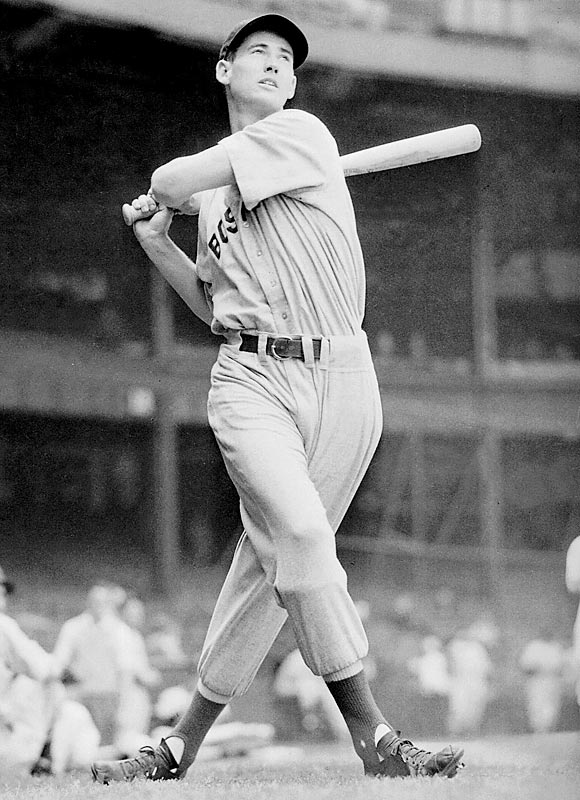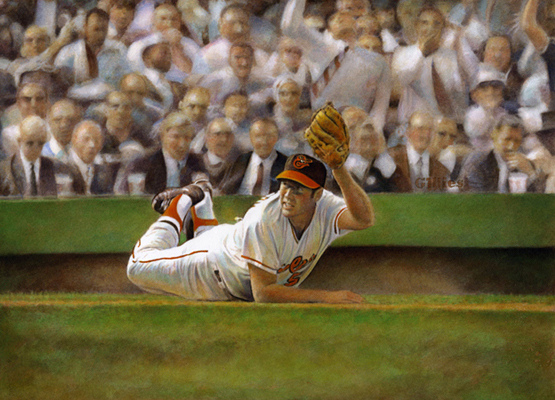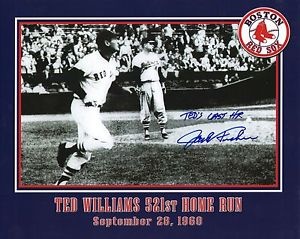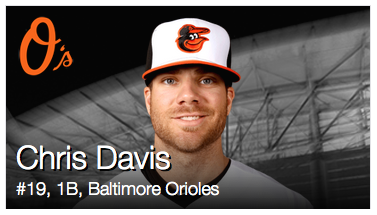
Ted Williams is arguably baseball’s greatest hitter of all time. How high a salary could he command if he were playing today?
ORIOLES’ $150 MILLION OFFER
TO SLUGGER CHRIS DAVIS
SEEMS MORE THAN FAIR
What would Brooks and Frank Robinson earn?
How much would the Bosox pay Ted Williams?
BOSTON MEDIA AND FANS TRY TO FABRICATE
MODERN BASEBALL HISTORY BY CLAIMING
THAT WILLIAMS WAS NOT THE GREATEST
By David Maril
Let’s take a holiday-week, year-ending break from politics, the daunting challenges Baltimore faces, and the terrorism-war issues plaguing the world.
Since, for the most part, we’ve had spring-like December weather, how about a bit of a focus on baseball?
As Chris Davis and Scott Boras, his pugnacious agent, determine if the slugger could make ends meet if he accepts the Orioles’ very respectable $150 million offer, it’s mind-boggling how historic perceptions and financial standards change.
Oriole fans, of course, hope the free-swinger, who hit 47 homers and knocked in 117 runs last year, does give Baltimore the so-called home-town discount and returns to play out a seven-year agreement.
It’s obvious he and his family like playing in Baltimore; Camden Yards is a launching pad for any power hitter; and he respects Manager Buck Showalter.
It also goes without saying he should appreciate the support he received from his teammates and the front office when he was suspended at the end of the 2014 season for testing positive for the unapproved use of Adderall.
The interesting question is how much more other teams would be willing to pay Davis.
The first-baseman does have a lot of factors going for him. He is entering his prime years, turning just 30 in March. Besides being a very solid defensive-first-baseman, he can also play third and has demonstrated he can handle right field as well.
But on the other side of his case, Davis is far from being Mr. Consistency.
It is difficult to ignore the fact that in 2014, he suffered through a horrendous season, hitting just .196. For a slugger of his stature, 26 homers and only 72 RBIs were unimpressive totals.
Even when he is in the groove, Davis is a human strikeout machine.
In 2013, when he hit .285, his highest seasonal average, he fanned 199 times. Last season, he had a career high 208 strikeouts. He can be pitched around by hurlers who have good control and are smart.
It’s true that strikeouts are common, and a tradeoff with most power-hitters, who live feast-or-famine appearances at the plate.
But there still has to be some concern about Davis hitting under .200 two years ago.
One has to wonder what he would have been willing to sign for after 2014, when he was suspended and had failed to hit .200, if the Orioles had tried to extend his contract then.
Which gets us back to the financial realties of baseball and perceptions.
In a modern world where the Orioles, offering $150 million, are a long-shot to retain Davis, you have to wonder what Hall of Fame players like Frank Robinson and Brooks Robinson would be worth today.
I remember as a kid it was a big deal when Brooks, the greatest all-around third-baseman in baseball history, cracked the $100,000 status level.
It is interesting, and sometimes irritating, how history can be rewritten after being forgotten. For example, how many times have we heard in the last few years baseball commentators naming a few more recent players ahead of Brooks as the greatest all-time third-baseman.
Up in Boston, which considers itself one of the best baseball cities with the smartest fans, there have been strange, stupid and misguided comments being made during this off-season.
IS DAVID ORTIZ THE ‘GREATEST HITTER IN RED SOX HISTORY’?
With the announcement that David Ortiz is retiring after the 2016 season, a surprising number of New England sportscasters and fans have been insisting that the 40-year-old DH is the greatest hitter in Red Sox history.
What happened to Ted Williams?
The argument for Ortiz, a nine-time All-Star with 503 round-trippers who holds the team’s single-season record for homers with 54, centers on the postseason. Ortiz is a three-time World Champion who hit well in the playoffs and World Series.
Their big knock against Williams is he only had a .200 average in the post-season. The reality, however, is he only had one opportunity for postseason action, playing in the 1946 World Series.
With the ever-expanding playoff system in today’s baseball, players have many more chances to accumulate postseason at-bats.
Although everyone is entitled to an opinion, it’s hard to argue against Williams, who died in 2002 at age 83, not only being the best all-time Red Sox hitter, but the greatest in baseball history.
No other player ever combined power and batting average with the scientific study of hitting the way Williams did in a career interrupted twice by military service.
DESPITE PLAYING IN FENWAY PARK, WILLIAMS SLAMMED 521 HOME RUNS
Despite playing in Fenway Park, a facility not conducive to left-handed pull-hitters, Williams slammed 521 home runs.
Had he not missed five prime seasons in the middle of his career for duty in World War II and the Korean War, he, not Barry Bonds, would have owned the all-time career home run record.
Despite two MVP awards and becoming the last hitter to bat .400, Williams did have his share of detractors.
Tall and confident, with a booming voice similar to John Wayne’s, and bearing a facial resemblance to charismatic film noir star Robert Ryan, he was uncomfortable living in the spotlight, even in the days before television.
Critics, frustrated by the team’s failure to compete with the Yankees, picked on Williams. Some sports writers, hoping to stir up controversy, insisted he could have been an even better hitter if he hadn’t been so stubborn about pulling the ball.
The current practice of radically shifting infielders away from their normal coverage areas on the field, began against Williams. His media critics wanted him to hit to the opposite field when teams started shifting an extra fielder onto the right side of the infield.

It was a big deal when Brooks Robinson earned $100,000 a year playing for the Orioles. What would that amount translate to in today’s baseball salary world?
His lifetime .344 career batting average certainly refutes that argument.
At times his intensity and strong personality resulted in a strained relationship with the media and the fans. But even his most vociferous critics, demanding perfection in all aspects of his game, couldn’t deny they were in the presence of greatness when he’d line a shot into the bleachers with a supple, flawless swing.
Unlike most power hitters — like Davis, Mickey Mantle, Mark McGwire, Sammy Sosa, and Barry Bonds — Williams rarely struck out. He had phenomenal eyesight and a tremendous knowledge of the strike zone.
In a sense, he was a free-swinging contact hitter who was a threat to drive the ball out of the park every time he strode confidently to the plate.
Williams was a combination of Ty Cobb, Rod Carew and Wade Boggs, with great power. This type of slugging ability, paired with such precise bat control, has never been duplicated.
It was only fitting that at age 42 he batted over .300 in his final season and homered — off the Orioles’ Jack Fisher on Sept. 28, 1960 at Fenway Park — in his last big league at-bat.
 How much would a player of this stature command in salary today?
How much would a player of this stature command in salary today?
davidmaril@voiceofbaltimore.org
“Inside Pitch” is a weekly opinion column written for Voice of Baltimore by David Maril.
CHECK OUT THE MOST RECENT “INSIDE PITCH” COLUMN: click here
…and read archived Dave Maril columns
by clicking here.






